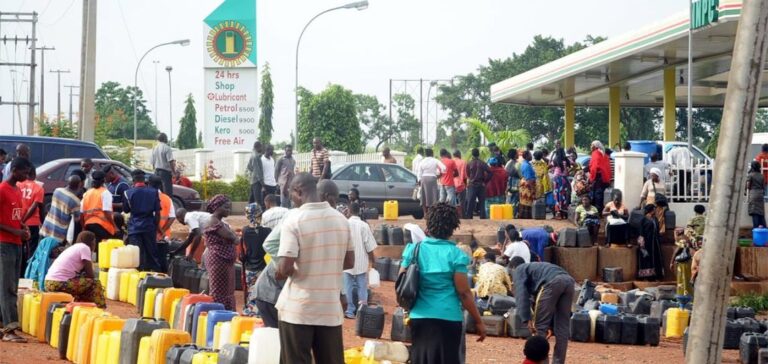Sitting in front of a gas station in Niamey, a pump attendant signals to motorists to turn back. The tanks have been empty for several days, and no resupply date has been announced. In the capital and several major cities, the gasoline shortage has resulted in long queues and vehicles coming to a standstill due to a lack of available fuel.
Insufficient domestic production
Although Niger produces oil, its refining capacity is limited. The country’s only refinery has struggled to meet rising demand, forcing authorities to suspend exports for the past year. Currently, only 25 fuel tankers are delivered daily, while national consumption requires nearly twice as much. Given this shortfall, gas stations are struggling to maintain their stocks, leading to increasing supply disruptions.
The impact of the end of the black market
For years, a significant portion of the gasoline consumed in Niger came from the black market, supplied through illegal imports from Nigeria. This parallel trade accounted for up to 50% of the country’s fuel supply, particularly in border regions. However, Nigeria’s removal of fuel subsidies led to a sharp price increase and dried up this supply source. Niger’s reliance on domestic production has since intensified, exposing the limitations of the current system.
Emergency measures in response to the crisis
To address the situation, additional fuel imports have been arranged. Gasoline stocks are currently being transported from a foreign port, but overland transport poses a major logistical challenge. The convoy must pass through high-risk areas, requiring secured escorts to ensure its safe arrival. Additionally, the recent fuel price cuts implemented by authorities have increased domestic consumption, further complicating the balance between supply and demand.
The effects of this shortage are being felt across the country, affecting mobility and slowing down certain economic activities. While awaiting a return to normal, pressure on fuel supply remains high, raising questions about Niger’s ability to sustainably stabilize its gasoline market.






















